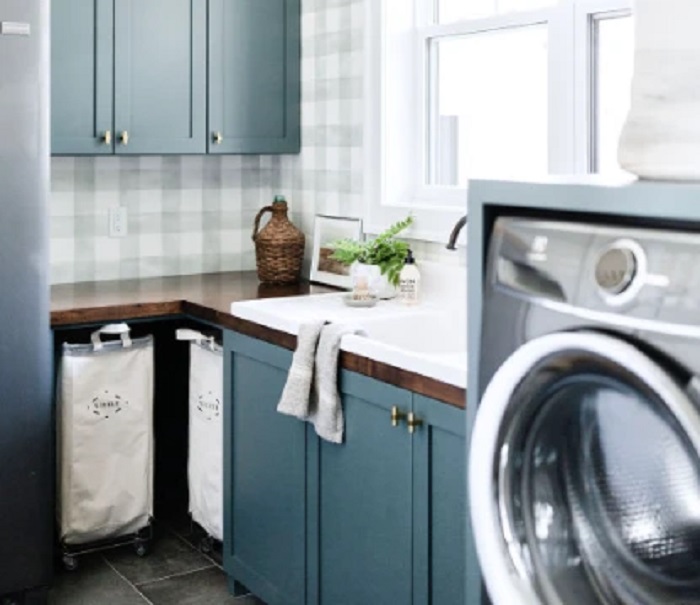For decades, people believed hot water was the only way to get clothes truly clean. But with modern detergents, energy-saving goals, and social media hacks, cold water washing has become a hot topic. The question is: does washing in cold water really work as well as the hype suggests, or is it just another laundry trend?
Why Cold Water Washing Is Trending
There are three main reasons cold water washing is gaining popularity:
- Energy savings: Heating water uses a huge chunk of electricity in every wash.
- Fabric care: Cold water is gentler, preventing shrinkage, fading, and stretching.
- Modern detergents: Today’s formulas are designed to activate even in cold temperatures.
For people managing laundry in London, where energy bills are high and clothes often face hard water conditions, cold water cycles are becoming a smart alternative.
The Science Behind Cold Water Washing
Clothes don’t get clean because of water temperature alone. Detergent enzymes do most of the heavy lifting. Many detergents now use enzymes that dissolve stains in water as cold as 20°C. For everyday dirt, sweat, and odors, cold water performs almost as well as warm or hot.
When Cold Water Works Best
Cold water isn’t perfect for every situation, but it excels in specific cases:
- Dark clothes: Prevents fading and color bleeding.
- Delicates: Protects fabrics like silk and lace.
- Everyday washing: Most lightly soiled clothes don’t need heat.
- Synthetic fabrics: Cold water prevents warping.
When Warm or Hot Water Is Necessary
Not all laundry can be handled in cold water:
- Heavy stains like oil or grease dissolve better in warm water.
- Whites and linens sometimes need hot water for brightness.
- Bedding and towels benefit from hotter cycles to kill bacteria and dust mites.
A good strategy is to use cold water for most loads and save hot cycles for items that truly need sanitizing.
Energy and Cost Savings
Switching to cold water washing can cut energy use significantly. Studies show households save up to 90% of the energy used in a single wash cycle by skipping hot water. For busy families or anyone juggling laundry in London, that translates to real money saved on monthly bills.
Cold Water and Hard Water: The London Factor
One challenge in London is hard water. Cold water cycles can sometimes leave detergent residue if the detergent isn’t formulated properly. To fix this:
- Use liquid detergents instead of powders.
- Add a rinse with vinegar to break down mineral buildup.
- Choose detergents labeled “cold wash” for the best results.
Common Myths About Cold Water Washing
Myth 1: Cold Water Doesn’t Kill Germs
True, cold water doesn’t sanitize as well as hot. But for most everyday laundry, sanitizing isn’t necessary. For illness-related laundry, hot water is still best.
Myth 2: Clothes Don’t Smell Fresh Without Heat
The smell issue usually comes from detergent residue, not water temperature. Using the right detergent and not overloading the machine solves this.
Myth 3: Cold Water Takes Longer to Wash
Modern machines are designed to optimize cold cycles. There’s no extra time added compared to warm washes.
Tips for Better Cold Water Washing
- Don’t overload the machine—clothes need room to circulate.
- Pre-treat stains before washing since cold water doesn’t dissolve everything.
- Wash similar fabrics together for even cleaning.
Expert Recommendations
Laundry professionals agree that a mix of cold and hot washes works best. Most loads can go cold, but heavy-duty items like towels and bedsheets benefit from heat. Balance is the key. For more practical hacks, check out resources like Hamlet Laundry’s Facebook page, where expert tips are shared regularly.
Final Thoughts
Cold water washing isn’t just a fad—it’s a smart way to save money, protect fabrics, and lower your environmental impact. With today’s detergents, cold water works well for most loads, especially darks and delicates. For people handling laundry in London, where energy costs and hard water add challenges, cold water washing is often the best option—just not for everything. Knowing when to use cold and when to use heat is the real laundry upgrade.

